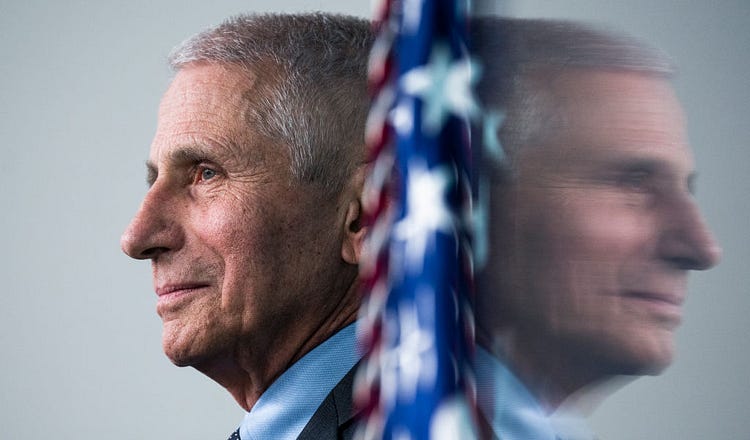Anthony Fauci’s Deceptions

Dr. Anthony Fauci attends the White House press briefing to speak about the coronavirus on Tuesday, November 22, 2022. (Tom Williams via Getty Images)
A trove of emails, Slack messages, and other documents reveal Fauci’s behind-the-scenes involvement. ‘Tony doesn't want his fingerprints on origin stories.’
763
On April 17, 2020, with much of the country still in some form of lockdown and news of overwhelmed hospitals dominating the headlines, Dr. Anthony Fauci, then a member of the President’s Coronavirus Task Force, was asked a question toward the end of a White House press briefing: Was there a possibility that this novel virus came from a lab in Wuhan, Chi…
Continue Reading The Free Press
To support our journalism, and unlock all of our investigative stories and provocative commentary about the world as it actually is, subscribe below.
$8.33/month
Billed as $100 yearly
$10/month
Billed as $10 monthly
Already have an account?
Sign In

